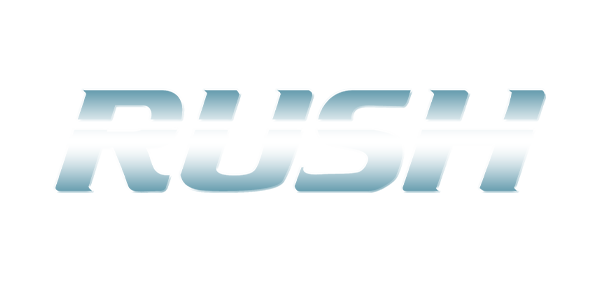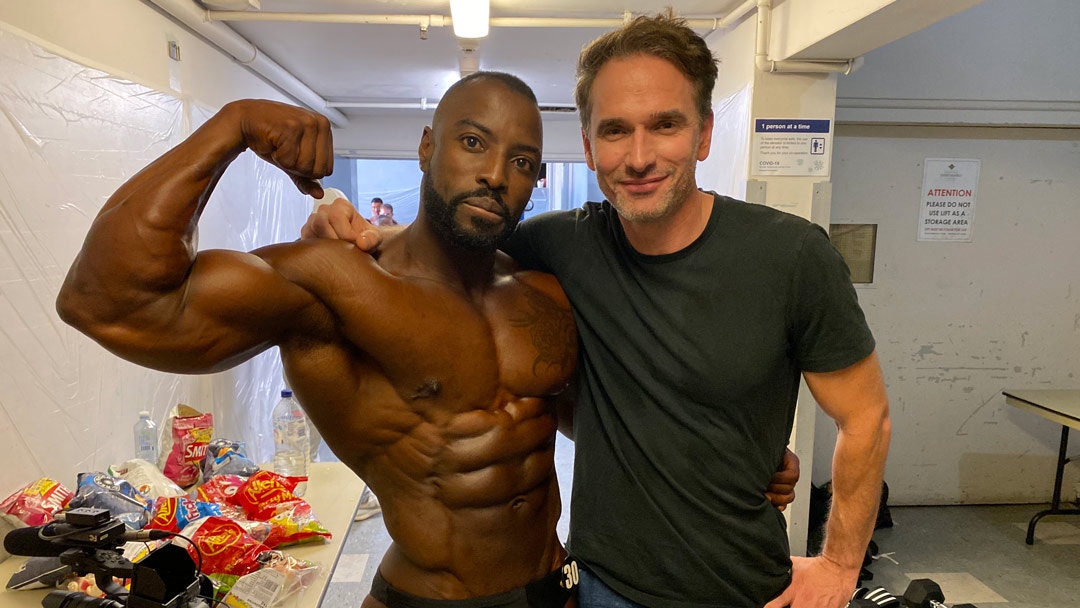In this documentary series, Todd Sampson delves into the global issue of body dissatisfaction and the heavy impact it has on a society that is more vulnerable than ever.
In a world infiltrated with advertising and reliant on social media, body images are constantly being compared, causing unhappiness between people and their appearance.
“We wanted to explore why we are all so dissatisfied with our bodies and what can we do about it?” Todd Sampson told 10 play.
“There's no questioning advertising’s role in perpetuating the beauty ideal, but then amplify that with social media and it's incredibly powerful. We have a television in our pocket that we use in the majority of our waking hour, so it has a huge impact and I guess part of the reason to do this film was I have first-hand experience in advertising. I’ve been there, I worked in the industry, I understand it.”
Todd begins the series with a moment where he asks a group of kids a few confronting questions, such as “Would you rather be fat, or sick?” and “Would you rather be beautiful, or smart?”
“That scene was inspired by my youngest daughter, Jet. One day I asked her, would you rather be good looking or smart? And she hesitated. She’s clever, so she knows not to say good looking, but she had this coy smile and looked at me and said “Dadda, that’s a stupid question”. Then it mulled a bit in her mind, and she said you know, a lot of my friends would say beautiful, right?”
After doing some research, Todd found that one in four children under the age of 10 would say beautiful, and so he decided to give the experiment a crack himself. As seen in the episode, all the kids shared that they would rather be sick than fat, and beautiful than smart.
“We were stunned by the responses. It’s caused by a combination of things. In that opening, you could see fat phobia and that is often taught indirectly by parents who are physically struggling with their own weight or fitness levels or their own looks at home, and they talk about it in disgust and the kids absorb it like sponges. That’s the only reason a four-year-old in this film is saying I’d rather be sick than fat.”
An important point to note is that it is crucial not to blame one specific industry for causing image dissatisfaction, however big of a role it may play.
“It’s not advertising, it’s not television, it’s not social media, but it’s the combination of all of those to form this matrix of insecurity. It’s all of those things and we live within that structure, and parents and friends are part of the fabric of that matrix.”
Living in a digital world, it's difficult to get away from all the idealised images surrounding us. Social media, television and advertising are all infiltrated with Photoshopped images and fake promises to stay looking beautiful and young.
This causes comparisons between individuals and what they see online as ‘beautiful’ and ‘perfect’, leading them to believe they aren’t good enough. In many cases, this causes people to invest in plastic surgery.
In Mirror Mirror, Todd included graphic imagery of various procedures as they took place.
“It was a strategic choice and we know for some people it will be a turn away, they’ll cover their eyes and be like, ‘oh I can’t believe that’. We realised that for a lot of people these concepts of surgery like Brazillian butt lift, facelift and liposuction are loose, abstract concepts that in their own right don’t sound that bad and don’t even sound that serious when you say it.
“Our goal was to erase the myths, the branding, the niceties, the edited photos on the surgery sites and show it for what it is. And it was crazy because I didn’t even see liposuction as anything visually gross but for some reason it really freaks people out.”
Todd wanted to show in graphic detail what happens in each surgery because “the way it's sold in the media, if you’re going to get a face lift, is that it’s easy. I don’t want to say we showed it because it’s a deterrent, because that just sounds acrimonious. I’m not against plastic surgery. What I’m against is an industry taking advantage of the insecurity that they create to make money off it, that’s what I’m against so I think showing it is one of the best ways to raise unfiltered awareness.”
Research shows that for the majority of people, they do feel better after surgery and that proved true for Julia, a lady in the documentary who got a face lift.
“I showed almost all of them [the videos of their surgeries] and they all tripped out. Julia, who I adore, she went totally apoplectic - she started grabbing me and we had to cut some of it out. She was holding my arm and grabbing me and I was like, Julia it's okay, you’re done now. So, they saw it and it's their sacrifice as well; that’s what they felt they had to do to match the ideal that’s been created. But there was no real regret.”
Being a father himself, Todd did admit that some of the trends he discovered while creating this documentary were concerning.
“I definitely worry and it makes me question my own choices with the girls, but I try to see it now from the inside. I try to join in with them so I can understand it, because what's easy to do is to drive it underground. What I say in the film is no one is immune to this matrix; we all live in the matrix, and so I just want to be consciously in it with my kids, help them understand it and in many ways, them help me understand it.”
In the second part of his documentary series, Todd explores what can be done to manage image dissatisfaction in our society and to try to decrease the negative impact.
“I don’t think we can eliminate; I think we can manage. It’s similar to fear - fear is innate, we have it and we are born with the need to compare. We’re born with this attraction to beauty; it’s about awareness and learning how to manage it.
“In the second part the scientist give us what has been researched and things that we can do, like detoxing, like curating the voices around you because you become what you see, so if you are only surrounded by idealised edited photos, then you begin to believe that there is something wrong with you.
“By increasing diversity in media, and that was one of the major choices of the stories that we told, just being responsible ourselves and having enough diversity and voices represented on screen is an important part of our creative process.”
Mirror Mirror is a fascinating documentary series that sheds a wealth of knowledge on an important topic that is often left untouched.
“I think we all suffer from body image dissatisfaction that we're all on a spectrum and nobody’s immune. There are tools and techniques that we can all learn to help us better manage that, and this documentary is focused on exploring the topic from diverse perspectives and scientists giving us some practical tips that we can use with our family and immediately. It’s a global crisis, it’s a big thing, it’s the water in which we all swim in and our kids are neck deep in it.”



























